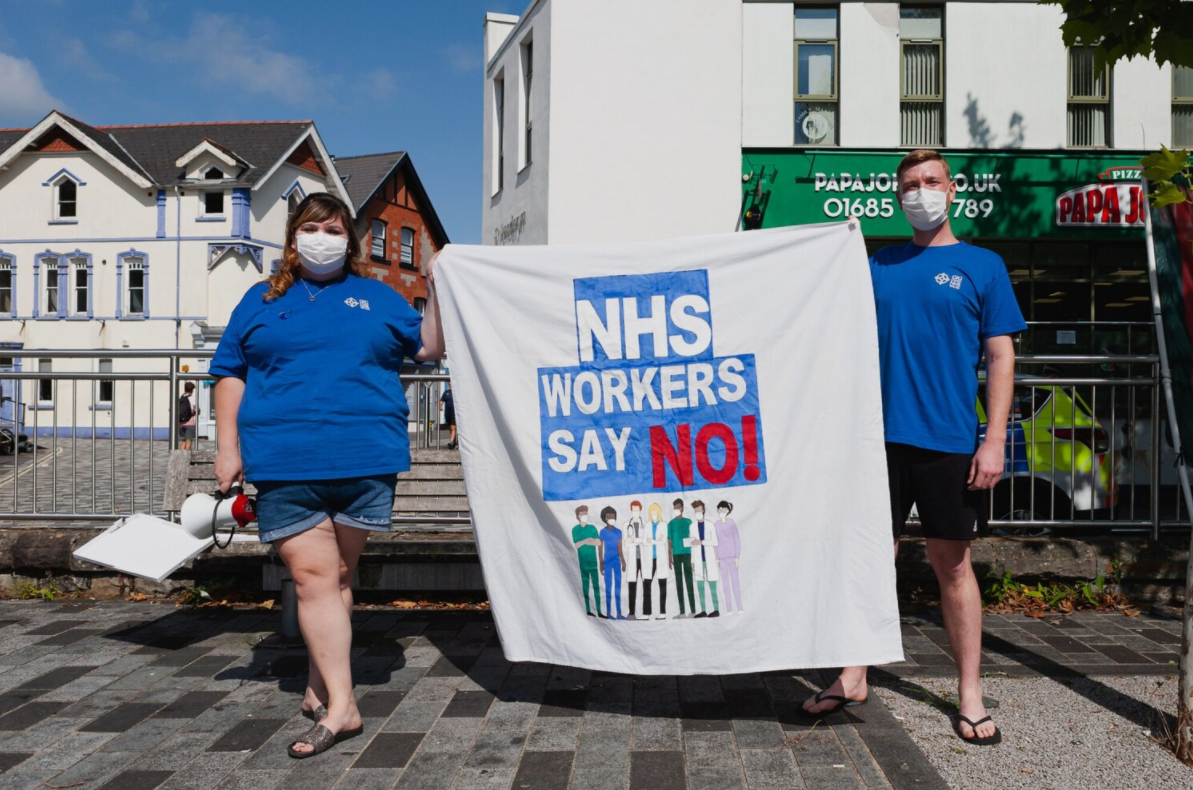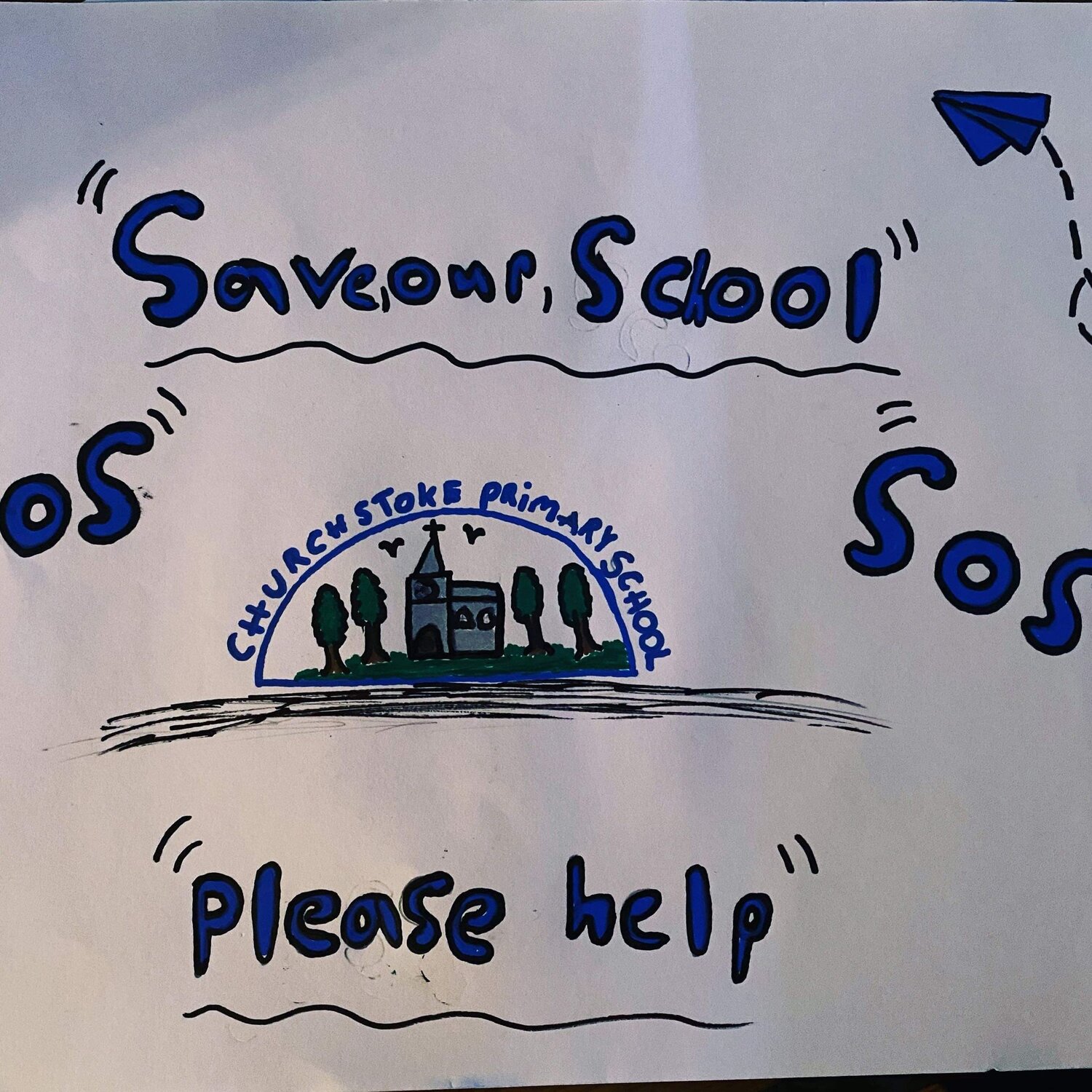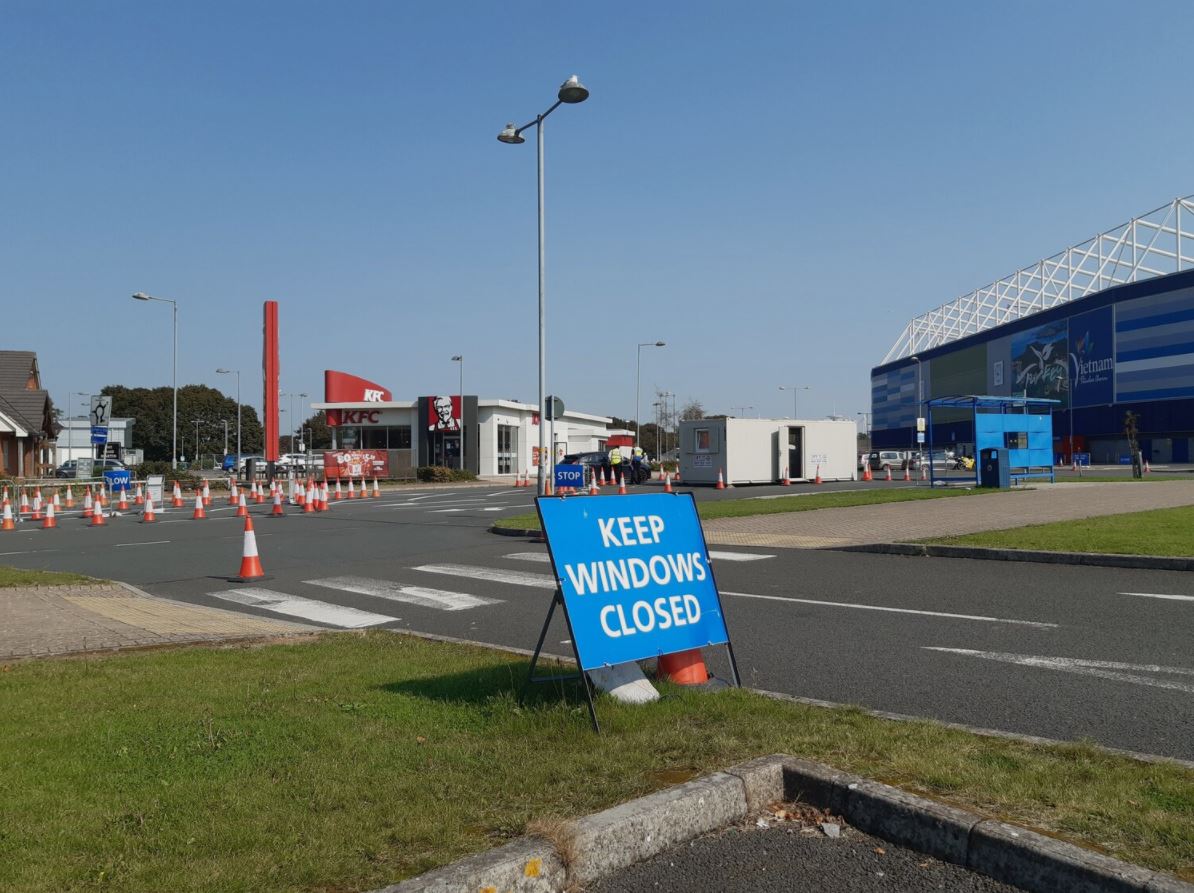
Battling COVID Yet Struggling to Pay for Christmas, Nurses Fight for 15% Pay Rise
NHS WORKERS ARE YET AGAIN ON THE FRONTLINE AS THEY CARE FOR SOARING NUMBERS OF CORONAVIRUS PATIENTS AFTER A SURGE IN CASES AND HOSPITALISATIONS ACROSS SOUTH WALES. BUT DESPITE THE FACT THAT MANY ARE WORKING LONG HOURS AND PUTTING THEIR OWN HEALTH AT RISK, THEY ARE STRUGGLING TO PAY BILLS OR BUY PRESENTS FOR THEIR CHILDREN AFTER A DECADE OF FALLING WAGES. TWO NURSES SPOKE TO VOICE.WALES ABOUT THE SITUATION AND THEIR DETERMINATION TO FIGHT FOR FAIR PAY.
By SC Cook. Cover Image, Glyn J Owen
When Rhian’s daughter turned four in April, she couldn’t be there for her birthday. She had contracted Covid working as a nurse in a hospital, and was terrified at the thought of passing it on. “I spent weeks away from my family,” she says. “I had COVID and had to isolate away from them.”
Rhian, who lives and works in the valleys, became very unwell from the virus and needed several rounds of antibiotics and steroids. Before she was forced to leave work, however, she witnessed the horror of dealing with Coronavirus first-hand.
“Up until the point I went off, it was difficult. I mean, it’s probably been one of the toughest things I’ve ever had to face in my life,” she tells me.
The hardest part for Rhian, picture above, left, was that families couldn’t be with their loved ones as they were dying, or extremely ill.
“I mean, I couldn’t imagine being in their position, where you can’t be there to hold someone’s hand, you can’t talk to them… it was a scary time.”
“…even for us as workers, we were afraid, we were afraid of what we were taking home to our family.”
But the battle against the virus isn’t over, and one of the toughest things for Rhian and others to contemplate is that the worst may yet be to come as cases and hospitalisations in South Wales soar.
‘People can’t go on.’
On top of this, however, health workers are facing another pressure: many are struggling to pay their bills and even buy food because of low pay.
Health unions estimate that since 2010, pay has fallen by around 20% for nurses and other NHS workers, when inflation is taken into account.
“Morale is low,” Rhian explains. “We’ve seen and faced things that nobody should ever have to…some of the people that have done that are on £12 an hour. We’ve had pay cuts for the last 10 years.”
She says she doesn’t know a colleague who doesn’t have to do overtime or work agency shifts to make ends meet.
“I’ve got two young children. I’ve got a partner, I’ve still got a life or try to have a life where I’m working four 15-12 hour shifts a week. People can’t go on like that. People are burning out. People are exhausted.”

For Jess, a nurse from South West Wales, the whole experience has been eerily similar. She describes how she missed 6 weeks of her young daughter’s life, who she sent to live with her grandparents when Covid hit and she knew she’d be on the frontline as an ICU nurse.
“6 weeks of memories, I missed Easter, reading bedtime stories, tucking her into bed. I didn’t sign up for that.”
After going to work and nursing fellow workers who had contracted the virus, Jess went home terrified after most shifts. “…thinking this could be me, and I’ll never get to hug my daughter again. It was a horrendous time.”
Now these nurses are living through another wave of the virus, with health boards across South Wales reaching full capacity following the end of the firebreak lockdown.
“Morale is low, we are going into winter exhausted and on our knees,” she says. “We have not recovered from the first wave and are not prepared for what already is an extremely busy and difficult time for NHS staff.”
There is palpable anger at the way in which government ministers clapped and cheered nurses like Jess and Rhian, yet have overseen huge cuts to their pay, and now refuse to give them a pay rise.
“We’ve faced everything thrown at us, people paying with their lives,” says nurse Rhian, “and for absolutely nothing. It’s all been, yeah, claps, but there’s no monetary value that has come into this at all…. How can you stand on your doorstep and clap for somebody and say paying them £12.06 an hour is fair!?”
‘Workers are backing the protests.’
This anger – which they say is directed mainly at the Tory government in Westminster because they have most spending power – has turned into something of a rebellion among workers, with protests, workplace campaigns and even the talk of strike action.
Specifically, NHS workers are demanding a 15% pay rise across the health service and the painful experience of the last year has made many determined to fight for it.
The campaign was started by a Facebook page originated by a group of workers out of a hospital in London, and snowballed from there.
Suddenly a series of demonstrations across Britain were planned, with nurses and other health workers starting to organise among themselves, sometimes independently of their unions.

As part of this wave of protests, events were held in Swansea, Bridgend, Cardiff and Merthyr in July, involving hundreds of workers and their supporters. Flowers were laid for their colleagues who had died from the virus, while powerful speeches rallied people to fight for fair pay.
This led some unions to officially back the 15% pay campaign. Another day of action that was planned in early Autumn was called off due to rising Coronavirus cases, but online events were held instead. Now people are being encouraged to wear badges at work pledging support for the campaign and to write to the independent pay review body.
“In such a short space of time… it’s made some progress. And fast progress because the unions have backed us quite quickly,” says Rhian. “Workers I believe are backing the protests, are backing the movement, and more and more people want to be involved.”
Along with several others, Rhian and Jess are now part of an all Wales group set up to build the fight for 15%. Both are acutely aware of just how difficult the fight will be, but the experience of this year has made them more determined.
‘Nurses can’t afford Christmas.’
The Tory chancellor Rishi Sunak recently tried to quell NHS workers’ anger by announcing a pay rise at the last budget, but the amount won’t be set until the spring and is likely to be around 3% or lower.
“I feel like it’s an attempt to just keep us happy,” says Jess. “It’s insulting to the work we do and the dangers we face daily dealing with Covid….we need a wage that keeps up with the cost of living and makes up what we have lost over the past 10 years.”
Rhian describes the offer as a kick in the teeth. “You know, people are reliant on food banks, and NHS staff, a lot of them are bringing home very small amounts of pay…I hope that our union takes a stand now if I’m honest and says enough is enough.”
The prospect of strikes has been raised by some nurses as the most potent form of action that could win a significant wage rise, and Rhian thinks an industrial action ballot should be organised by the unions. She says the mood is split when it comes to strikes, but many could be won round.
The worst outcome of all it seems is if things simply carry on like this. Healthcare will continue to crumble as more nurses become demoralised and less join the profession, something the nurse I speak to really worry about. Often it feels like they’re hanging on by a thread themselves.
During the last three weeks, Rhian says she’s worked between 48 and 60 hours a week, simply because she doesn’t want her children to go without at Christmas. It’s the same for so many other health workers.
“It breaks my heart to think that people who are in full time employment can’t afford Christmas comfortably…,” explains Rhian. “Not even gifts for other people, but for their own children.”
We are having a conversation sandwiched between her exhausting working week and volunteering to feed the homeless. She explains that some of her co-workers don’t admit to being in serious poverty, but have to rely on donations to eat properly.
Even though she finds this situation deeply upsetting, Rhian believes now is the time health workers have to stand up for themselves, for the benefit of all.
“As NHS workers in Wales, we can’t fight this campaign alone,” she tells me. “You know, there is strength in numbers. And I truly do believe that we need to stand together and fight for what’s right. And not just for us, but for everybody across the board.”



2 Comments
Comments are closed.